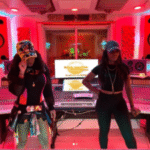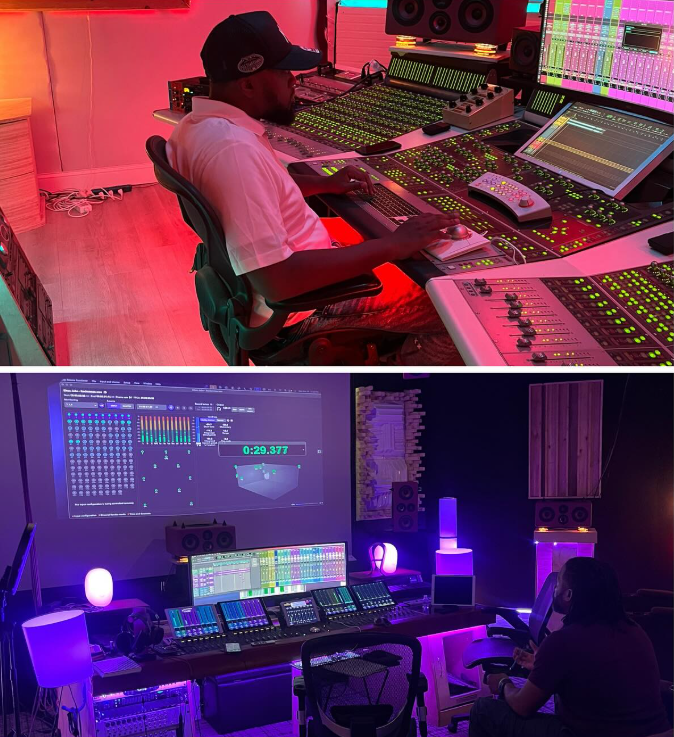Recording sessions are where your creativity meets technical precision. Having a successful session not only requires real, raw talent. But also tough preparation, communication, and collaboration between artists and engineers. When both the artist and engineer are aligned, the process gets easier; it becomes seamless, productive, and enjoyable. In this blog, we will discuss the different strategies that can help both artists and engineers run smooth recording sessions.
Importance Of Preparation:
Creation of every masterpiece requires thorough dedication and preparation. You can say preparation is the backbone of every great session. If you are an artist planning to record your music in a recording studio session, you need to be fully prepared. Make sure you arrive knowing your material inside-out.
Your preparation doesn’t have to be perfect; all you need to do is be comfortable with all the lyrics, melodies, or instrumental parts. So that you are not bothered later due to unnecessary delays.
Similarly, if you are an engineer, make sure all the equipment is well tested, cables are functional, and the digital audio workstation is ready. Do not wait for the right time; your equipment needs to be fully ready before the artist arrives. Having a pre-session work checklist always helps; it helps you prevent frustrating technical hiccups that waste your valuable recording time. So, make sure you have one for your recording session.

Well, if we talk about the music artist, it is important that you warm up your vocals or instruments before entering the studio. Whereas, for engineers, it labels tracks in advance, setting up monitoring levels, and creating templates in the recording software. This not only saves your time but also allows the session to begin smoothly.
( Also Read More – Atlanta, the Rising Capital of Music Recording )
Clear Communication:
Miscommunication is a dealbreaker. Miscommunication leads to misunderstandings, which can derail even the most promising recording sessions. So, now you know what you shouldn’t do or prevent.
Being an artist or engineer, you should make sure to establish a clear communication channel from the very start of your recording session. If you are an artist, you must express your creative goals, preferred sound textures, and performance style clearly. So that it helps the engineer in charge to understand your artistic vision and align all the technical equipment accordingly.
Whereas, as an engineer, you should provide clear feedback without overwhelming the artist. Thus, balancing technical accuracy with a touch of encouragement.
Not every artist understands terms like “compression ratio” or “EQ cuts”, so it is very important to use non-technical language when necessary. When the explanations are simplified, the connection builds differently– it builds trust and avoids confusion. Active listening—on both sides—creates a collaborative environment that enhances creativity.
Creating The Right environment:
The vibe of your recording session is solely based on the environment of your studio. In short, the environment of your studio moulds the vibe present. If there is a comfortable, relaxed atmosphere, it will allow the artists to be the best version of themselves and perform the best.
As an engineer, you should pay more attention to lighting, temperature, and even to the small details like the placement of chairs or water availability.
Whether you’re working at Atlanta music studios or the best music studios in Atlanta, these small points make a huge impact on your recording session. These small points make a huge impact on your recording session. These subtle touches can make an artist feel valued and respected.
It’s not just the work of engineers, but also of artists. Artists also contribute to the environment by maintaining professionalism. Arriving on time, respecting all the studio rules, and staying focused are quite simple. But also very important to ensure their session runs smoothly and remains productive.
Time Management:
Time is everything; the more time you waste, the more money you require to book another session to record your stuff, so why waste it? Every Atlanta recording studio has its time rule, and they operate under strict time limits. Using this time efficiently ensures that your energy is spent on creativity and not on wasting time waiting around.
As an engineer, you have the ability to make a structured recording session, a session with clear milestones. For instance, tracking vocals in the first hour, layering harmonies in the second, and reviewing your takes in the third. This not only prevents fatigue, but also keeps all the work in progress and steady.
However, for artists, time management is everything. For them, managing time means knowing when to move forward. It is quite natural not to be satisfied with a few takes, but going for endless repetition can exhaust both the performer and the engineer. There should be a balance between your want for perfection and recognizing when a performance is “good enough” is key.
Handling Technical Challenges:
You can’t control wind– technical issues are something similar– you can’t control them either. However, how you handle this wind makes the difference. As an engineer, you should come up with your backup plan. For instance, extra cables, alternative microphones, or redundant storage options. Having quick problem-solving tactics not only helps you save your precious time but also reassures artists that their work is in capable hands.
Artists can support this process by staying patient during troubleshooting. Frustration is normal, but keeping morale high ensures the session doesn’t lose momentum.
( Read More – What Goes into Making a Recording Studio Great? )
Conclusion:
Running a recording session smoothly is an achievement in itself. A smooth run recording session needs a perfect blend of preparation, communication, time management, and mutual respect. When artists and engineers work as partners, the process gets easier. It becomes less about overcoming obstacles and more about capturing moments of magic. With the right strategies, every session can be productive, stress-free, and creatively fulfilling.

